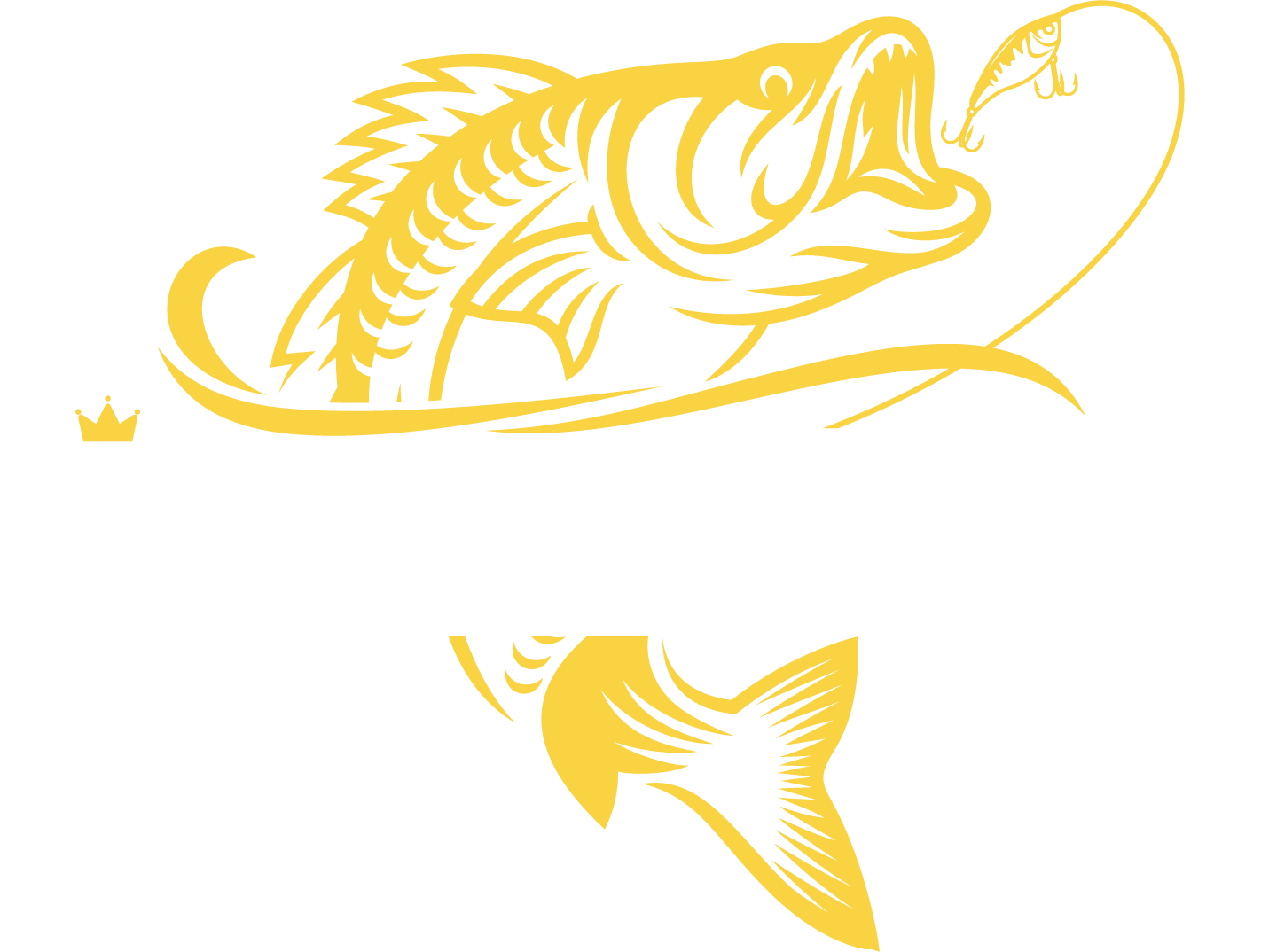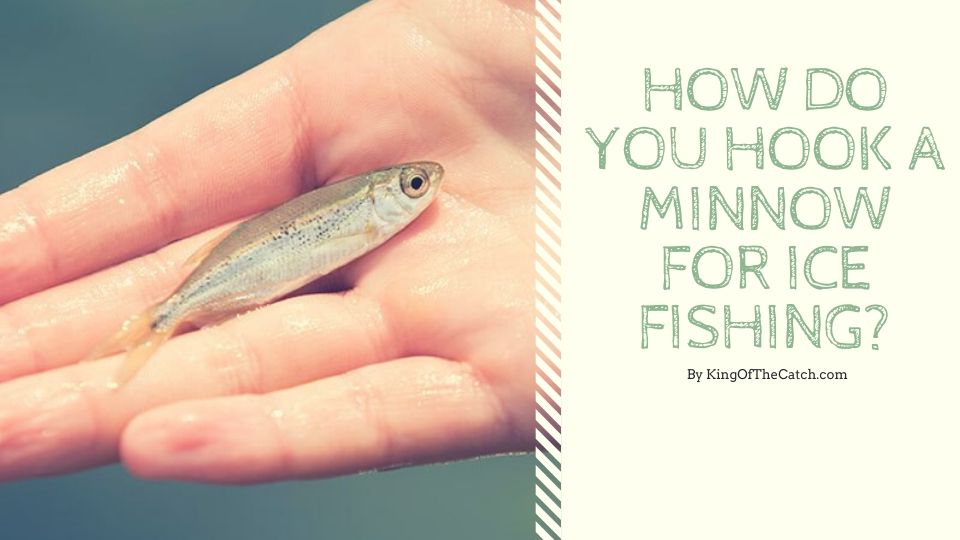Today, most modern fishermen opt for artificial baits and lures. Innovations are always welcomed. And no doubt, spinnerbaits, and jigging spoons have their own benefits. But trust me! Nothing’s better than using a real minnow as your bait.
If you are anything like me and want to keep the traditional fishing spirit alive, I’m sure you know exactly what I’m talking about. Artificial lures are super easy to use. However, when things go wrong, and your targets just don’t bite on the lures, your best bet is to switch to real minnows.
Easy Ways to Hook a Minnow for Ice Fishing
In fact, when it comes to ice fishing, I would suggest you to only stick with baits (as minnows) and not artificial lures. Artificial lures work well only during warmer days.
Learning to hook a minnow wouldn’t be a tough task whether you are a beginner or an advanced fishing enthusiast. However, when it comes to fishing with a minnow, you do need some basic techniques to make the most out of your ice fishing trip.
So without further ado, let’s jump straight into the different techniques of hooking a minnow.
Hooking Minnows
Wondering why minnows are the best bait? It’s because minnows are loved by most game fishes and consumed as a part of its diet. So, there’s no question that a live minnow struggling to free itself from a hook will catch the attention of predator fishes.
Here are some of the best ways of hooking a minnow for ice fishing:
Lip-hooked
Lip-hooking a minnow is the best way to lure fishes. A lip-hooked minnow tends to show more live-action, thus attracting the attention of predators. You can use live-bait rigs for this method, such as drop-shot rig or sliding weights, along with a bobber or sinker. This way, the weights pull down the bait, yet keeping it above the weight. By the way, the Eagle Claw Bass Casting Sinker is one of the best I’ve used so far.
For lip-hooking a minnow, all you got to do is insert the fish hook through the bottom first, then the top lip. This allows the minnow to swim upright. However, this method does not allow water to circulate through the bait’s gills. Thus, they can die quickly. So, when it comes to fragile or smaller minnows, it is best to hook their upper lips alone.
Back-hooked or Dorsal-hooked
This method is best used when ice fishing with tip ups, and undoubtedly the easiest. It is known as the dorsal-hooked method because you hook the minnow right behind its dorsal fin. Hooking a minnow by its back allows it to swim more naturally. Use a sinker or a bobber for this method as well. About 18” long bobber will do the job because you wouldn’t want the minnow to swim away too far. You can also opt for a weighted hook for keeping the minnow in place.
A dorsal-hooked minnow survives longer than a lip-hooked minnow. While using this method, make sure to place the hook towards its head. Most fishes bite the minnow’s head first. Thus, this way, you have better luck at hooking up a catch.
Be careful not to push the hook too deep and only hook the upper portion of its back. If you hit the minnow’s spine, it will die.
Hooking the minnow along with a lure
A live minnow often goes unnoticed from a far distance, even more so, in cold water. So, in this case, you can make use of artificial lures. A vibrant spoon or rattle baits can attract fishes from quite a far distance. Thus, tipping a lure alongside a live minnow is a great combination.
This way, you can attract a fish plus get them to bite into the hook with a real minnow. For this method, you can tip a jigging rap, plugs, crankbaits, or other tantalizing lures with a lip-hooked minnow.
Side note: When it comes to tantalizing lures, I usually opt for the TRUSCEND Fishing Lures.
Tail-hooked
Tail-hooking a minnow does not require additional weights. In this method, you allow the bait to swim without any extra baggage, except the length of the hook line.
For this method, insert the hook through its tail carefully. Make sure not to hit the minnow’s spine. Tail-hooked minnows are a good way of attracting perch and walleye since they are usually found at the bottom.
But remember, most fishes bite the head first. So, you might want to wait a few seconds for the fish to bite on to the hook. This method is best used with smaller minnows.
Quick Strike Rig
This is one of the best methods of hooking a dead minnow. It is an effective way of catching lake trouts and large pikes. Large fishes go for larger baits. Thus, about 9” to 14” minnows work well to attract the bigger predators.
The unique thing about the quick-strike rig method is its double hook system. For this method, most fishermen use wire leaders and treble hooks of either size 4 or 6. Before hooking the fish, make sure to scrape away the scales on its back and set the stinger hooks on each side of the dorsal fin. Make sure the two hooks are not more than 4 inches apart.
Once you have set the stingers, place the main hook on the top of its head right at the back of its gill plate.
Also, make sure to pierce the air bladder in large minnows. This will allow your bait to sink in.
Conclusion
Simple and easy, isn’t it! However, if you’re still not quite there yet on how to hook a minnow, you can head on to Youtube and check out this cool tutorial here. P.S. I know how irritating it can get when you keep losing fish hooks (I lose some on every ice fishing trip).
So, here is a great recommendation you might love, check out the JSHANMEI Hooks. These hooks come in bulk, 150 pieces to be precise, and in different sizes. So, whatever the size of your minnow, you’ll never run out of hooks!

Niels Thomas is a wildlife expert and fishing fanatic that works with major fishing brands like Deeper Sonar, Abu Garcia, Berkley, PENN, BassPro and Pure Fishing. Through sharing the best fishing tips, tricks, gear reviews, locations and much more he hopes to inspire fishing fanatics to start their own journey towards becoming the King of the Catch!


